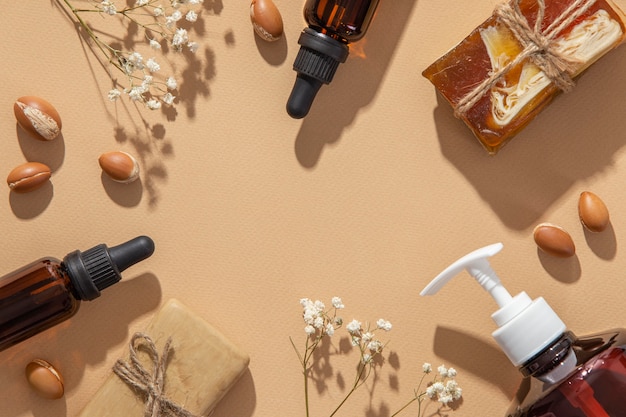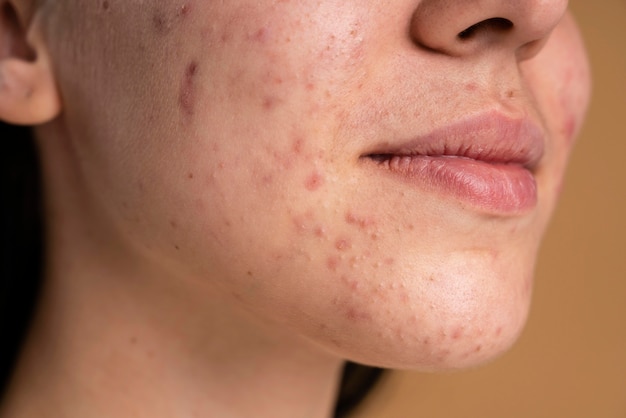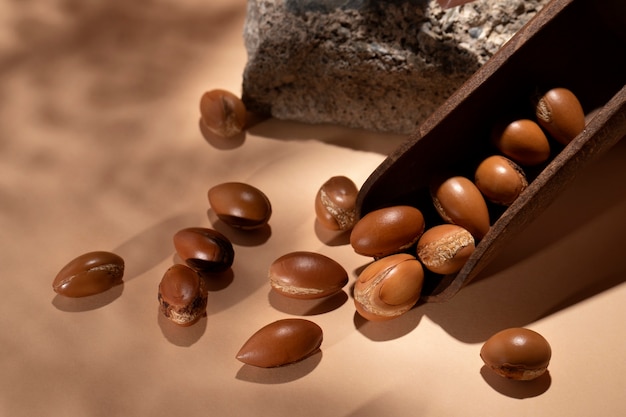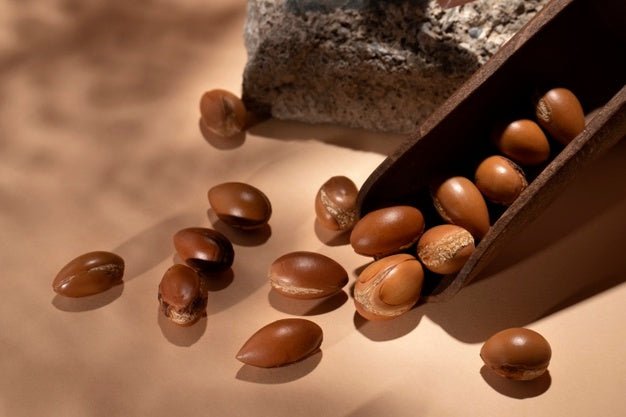Top 15 Benefits and Uses of Argan Oil for Skin and Hair
Beauty is a significant part of our lives. We spend a lot of time and money maintaining our skin, hair, nails, and more. So it's not surprising that everyone wants the best products they can get their hands on.
Pure Argan oil is derived from the argan tree kernels that grow in southern Morocco. It has been used for centuries by Moroccan women to nourish and protect their skin and hair from harsh weather conditions such as heat and cold, sun exposure, and windblown dust.
The use of Argan oil in beauty products goes beyond Morocco, however. Argan Oil is now found across numerous different beauty brands, each touting the very same ingredients as being transformative for your hair or skin, among other things. It is beneficial in several ways, and this article explains fifteen benefits of argan oil.
What is Argan oil?
Pure Argan oil is a natural product from the Moroccan argan tree. It's touted as having a variety of benefits for skin and hair. Across different beauty products, you can find it touting the very same ingredients: moisturizing properties, anti-aging, and many more.
But does Argan oil work? And what do we know about its effects on skin and hair?
The answer to the first question is yes – Argan oil does have a variety of benefits for hair and skin. The best research that has been done on this topic concludes that Argan oil is effective at moisturizing skin as well as healing wounds. Research has also shown that it may help with reducing wrinkles, improving elasticity in aging skin, protecting against sun damage, and preventing acne.
How to Use it?
Argan oils can be used for hair growth to give you shine and hydration. Apply 8-10 drops of argan oil on your hair and scalp, massage for 10 minutes, wrap your hair with a towel, and wash off after 30 minutes.
Massaging your hair and scalp with argan oil for 10 minutes will make your hair healthy and shiny. Use the towel to wrap the hair to avoid wetting them with water.
Benefits
Easy to add to your routine
Argan oil has many benefits for the skin, like reducing wrinkles and acne scars. It also helps in the skin healing process for wounds and burns by preventing scarring. Moreover, it is suitable for your hair because it rejuvenates the scalp and prevents split ends. Argan oil also makes nails stronger if applied regularly to them.
Moroccan Argan oil can be applied to your scalp or your hair directly. It's absorbed quickly into the skin so that you will see immediate results. As a bonus, it can also be used as a facial moisturizer, lip balm, cuticle conditioner, and more!
Argan pure oil is popular in cooking because of its high smoke point, 420 degrees Fahrenheit. It has a distinctive taste that is nutty and slightly sweet. This makes it a popular choice for salads, dips, and other cooked dishes.
To create a recipe that includes argan oil, use it to substitute for vegetable oils with lower smoke points. For example, you can use argan oil instead of olive oil to cook at 420 degrees Fahrenheit or higher.

Has antioxidant and anti-inflammatory properties
Argan oil contains a rich source of antioxidants and anti-inflammatory properties, which can help with many skin conditions, such as eczema, psoriasis, acne, etc.
In addition to these properties, the extract from the argan fruit also contains vitamin E, an essential vitamin for healthy hair growth.
May Boost Heart Health
Argan oil is rich in monounsaturated fatty acids, good for the heart. Studies have shown that argan oil may help lower cholesterol levels and reduce the risk of cardiovascular disease.
It also contains oleic acid, an essential compound for lowering cholesterol levels. Argan oil can also increase blood levels of antioxidants like vitamin E and phenols, which protect against oxidative stress and free radical damage in the body.
Contains essential nutrients
Moroccan Argan oil is an essential, healthy ingredient for hair and skin. It contains essential nutrients, phenolic compounds, 29–36% of the fatty acid content of argan oil, vitamin E, and Omega fatty acids.
Argan oil has a multitude of benefits for both hair and skin. It can help with moisturizing dry skin by providing hydration to the cells. It can help hydrate the scalp and strengthen it against breakage for dry hair. Argan oil can also improve blood circulation, reducing stress or fatigue in your body.
Also, Phenolic compounds are a significant component of argan oil. Phenolic compounds have been studied for their antioxidant properties and have been shown to have antiviral and antibacterial effects.
Sometimes Used to Treat Acne
Argan oil is an ancient beauty secret with protective properties numerous health benefits. It is rich in essential fatty acids compared to coconut oil, linoleic acid, vitamins A, E, and B12. This oil is rich in antioxidants that heal damaged skin cells.

1) Acne
Argan oil has been used for centuries for healthy skin. The number of acne patients who have benefited from argan oil can be counted on one hand. One study showed that argan oil led to a reduction of redness or irritation by 60%. The high level of linoleic acid helps regulate sebum production, which would otherwise cause acne breakouts.
2) Skin hydration
The anti-inflammatory properties are another critical factor that makes Argan oil effective against Acne breakouts, reducing redness.
Moisturize skin and hair
Argan oil has become popular for its uses in hair and skincare and health benefits. It can moisturize the skin and reduce the appearance of wrinkles for the skin.
It contains oleic acid and linoleic acids, which help to moisturize the skin or hair, making it more hydrated with improved elasticity when used regularly.
For hair, argan oil can help to reduce split ends. It also helps to make hair easier to style and reduces frizz.
May reduce signs of skin aging.
Organic Argan oil is an all-natural, vegan-friendly oil that may reduce signs of skin aging. The latter is believed to help moisturize the skin and protect it against inflammation.
Argan oil contains omega-6 and omega-3 argan oil's fatty acids, antioxidants, vitamin E, and other lipids. It may reduce signs of skin aging because it has been found to supply many nutrients for the skin. Argan oil also contains high levels of Vitamin E, which gives it an antioxidant property that helps repair and maintain healthy skin tissue by reducing wrinkles and other signs of aging. Furthermore, the high lipid content in argan oil gives it a natural ability to increase skin elasticity.
The antioxidant properties of Argan oil may also help protect skin against environmental damage like UV rays and pollution. They can also reduce signs of aging like fine lines, wrinkles, age spots, and other telltale signs of sun exposure over time.
May treat some skin conditions.
Argan oil can treat skin infections, inflammatory skin conditions, and specific skin infections. The oil contains antioxidant and anti-inflammatory properties that have health benefits in your body.
The anti-inflammatory properties fight against some skin conditions, including acne, dry skin, and psoriasis, and inflammatory skin infections like dermatitis, and more. It also contains antioxidants that can help protect your skin from free radicals and UV damage.
Argan oil can also reduce dryness, remove wrinkles, improve skin elasticity and stimulate skin tissue regeneration.
It may have anticancer effects.
The benefits of argan oil are not limited to external use. It is an antioxidant and can slow the growth of cancer cells with its anticancer effects. The benefits of Argan oil are well-known and include:
A study published in the Asian Pacific Journal of Cancer Prevention found that the Oil May have anticancer effects and suppresses the growth of breast cancer cells
Another study published in Nutrition and Cancer found that it Slow the growth of cancer cells. Argan oil inhibited the proliferation and induced apoptosis (programmed cell death) in pancreatic cancer cells.
Since argan oil may have anticancer effects, it can be used by people concerned about breast cancer, skin cancer, prostate cancer, and other cancers.

May Have Benefits for Diabetes
Some of the most exciting research on Argan Oil is its potential benefits for diabetes. Like other plant oils, Argan Oil can help reduce inflammation and blood sugar levels. This makes it an excellent choice for anyone with diabetes or trying to prevent developing diabetes. It also helps maintain weight, which can be difficult for people with diabetes.
Argan oil has been found to lower the risk of type 2 diabetes in people with diabetes and control blood sugar levels in those without the disease. Many people who have diabetes use Argan oil as a natural remedy for the condition because it contains a high amount of unsaturated fatty acids, which helps regulate blood sugar levels.
One study found that those who eat foods containing argan oil have lower insulin resistance and improved glucose tolerance. In addition to regulating diabetes, argan oil also has been found to improve cholesterol levels and reduce inflammation in those with diabetes.
Often used to treat and prevent stretch marks.
Stretch marks are one of the most common skin issues for pregnant women. And as many as 85% of all adults suffer from stretch marks at some point in their lives.
Stretch marks occur when the skin is stretched too quickly or if it gets too thin. This can happen during pregnancy and puberty, but also as a result of weight gain and loss.
A popular stretch-mark treatment uses Argan oil to moisturize and nourish your skin. It has been shown that Argan oil will help reduce the appearance of stretch marks and can even prevent them altogether.
May promote Wound Healing.
Argan oil is not only beneficial to the skin or hair, but it could also benefit wounds. A study was conducted with rats that were given an open wound. One group of rats was given argan oil three times a day for two weeks, while the other group was not treated with anything.
When the study ended, the results showed significant healing in both groups. However, the argan oil treatment decreased inflammation and promoted wound healing significantly better than the untreated group.
This implies that Argan Oil might be used as a topical treatment for wounds or burns. As more research is conducted, we'll know more about this potential use for Argan Oil.
Final thoughts
Argan oil is a natural care product that Moroccan women have used for centuries to maintain their beauty. In recent years, argan oil has grown in popularity as an all-natural way to hydrate the skin and provide essential nutrients to the hair. Argan oil is rich in Vitamin E, omega-6 fatty acids, unsaturated fat, linoleic acid, and oleic acid, which all work together to keep your complexion healthy and hair lustrous.
By understanding the benefits of argan oil, you can take better care of yourself each day without having to worry about harsh chemicals or synthetic ingredients.
FAQs
Does Argan Oil lighten the skin?
Yes, Argan Oil also contains vitamin A and it can also lighten skin tone in some cases when applied topically every day over three months (though this will not be permanent). The oil also contains natural antioxidants that can help treat acne, eczema, sunburns, and wrinkles.
How many drops of argan oil should I use on my face?
One or two drops are enough. The first step would be to wash your face with warm water to open your pores. Then gently massage the argan oil on the face with fingertips or using a cotton ball. Be sure not to push too hard, or you could damage the skin tissue.
For more severe cases of dryness or for removing makeup, heavy oils might need to be used to remove all traces of makeup or grime from your skin.
Can I use argan oil every day?
It depends on your hair type. But If you want to keep your skin hydrated and healthy, you can apply argan oil every day. On the other hand, if you want to protect your hair from breakage and frizziness, the answer is probably not. Argan oil has a high content of Vitamin E, which promotes healthier hair and makes it more prone to falling out or breakage. So if you have a fragile hair type, using argan oil every day might not be the best idea.
Can Argan Oil replace moisturizer?
No. Some people believe that argan oil can replace lotion or cream. But the truth is, argan oil does not have the same function as moisturizers. It's not even possible to use it in place of moisturizer because it is absorbed into the skin slowly and does not create a barrier on top of the skin to prevent moisture from escaping.
While argan oil, you can apply argan oil as an alternative in specific situations, it should never be chosen over a good quality cream or lotion when you need serious moisture in colder weather or in cases where skin sensitivity is an issue.



